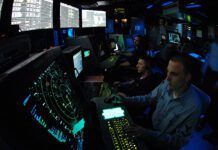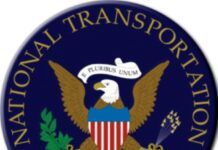About a month after Chesley B. Sullenberger had ascended into sainthood after his skillful 2009 ditching of US Airways 1549 into the Hudson River, a network reporter took a few moments to ask him in depth what he thought about the mantle of heroism that had been thrust upon him. His response was memorable. He said he understood why people wanted and needed heroes and if he had to play the role for his moment in history, he’d do so without complaint.
Tammie Jo Shults, batter up. Like Sullenberger, Shults was confronted with a serious inflight emergency when an engine on the 737 she was flying essentially disintegrated. Unlike Sullenberger, she and First Officer Darren Ellisor at least had thrust from one good engine. They handled the emergency ably and professionally.
But the narrative has extra richness this time because of Shults’ gender and the fact that she was one of the first women to enter the cloistered world of the military fighter community. I’ve seen reports that she was turned down by the Air Force before being accepted for flight training by the Navy. I don’t know if this is true as reported, but I’m sure you can see how the script just about writes itself.
Predictably, all of this is catnip to the working press. The headline writers couldn’t resist using a passenger quote about Shults having “nerves of steel.” Most of us in aviation will have the same reaction to that, I’m sure. Just once, I’d like to see a headline that says “Engine Explodes, Pilot Reduced to Whimpering Panic as Passengers Land Jet.” Well of course she remained calm. Would we expect anything less? Calm helps sort through the emergency checklist and the decision tree, just as the training doctrine requires. We sometimes forget—or maybe headline writers do—that the pilots are always the first to the scene of the accident so in addition to the duty of care they feel professionally for passengers, they have a certain self-interest. And besides, screaming and panic sound really bad on the tape.
It doesn’t take much reading between the lines to know that a parallel story hook in these reports is that it is somehow remarkable that a woman was involved in resolving this emergency, but my reaction is the same. Why would we possibly expect anything less? Or if it is remarkable, it’s only because of the rarity of such an event itself in a universe where airline accidents have effectively become zero or perhaps because Shults was among a small handful of women who broke into the boy’s club, thus paving the way for others to follow. I will admit to being an unreconstructed dinosaur here; a genuine 1970s Germaine Greer feminist. I put a period on this sentence decades ago and accepted at face value the declaration that women could do any job that men can. I haven’t changed that view, although I recognize that many still don’t embrace it.
If the outcome of this emergency serves as a touch point for recruiting women into the cockpit or science or technology, fine by me, although personally, I am not necessarily animated in that direction. The most compelling argument for more women in such workplaces is to help remove what barriers remain for women in general, while at the same time acknowledging that for generational and cultural reasons not related to bias, they may not be interested in such professions. Call me naive, but I’d just like to stop discussing innate ability.
Here a word on the dark side of this emergency. A passenger died as the result of a cabin breach. In the midst of the adulation for an emergency well handled, spare a thought for the family of the deceased and for the trauma any professional airline crew feels at losing a passenger whose life it is their duty to protect. Rightly or not, the captain gets most of the attention in such events because it fits the easy-to-read narrative. But I think I’m on safe ground here predicting that when Shults gets her Sullenberger moment, she will deflect the praise toward her First Officer and, especially, the cabin crew. They had to deal with the emergency firsthand and, rising to the occasion, proved once again that flight attendants aren’t there just to serve drinks, but to save lives and salve the terrified. For them and for Shults and Ellisor, there is no need to write a hagiography, but merely to acknowledge duties performed professionally under duress. Just as we shouldn’t expect any less, I suspect they don’t expect any more.


































